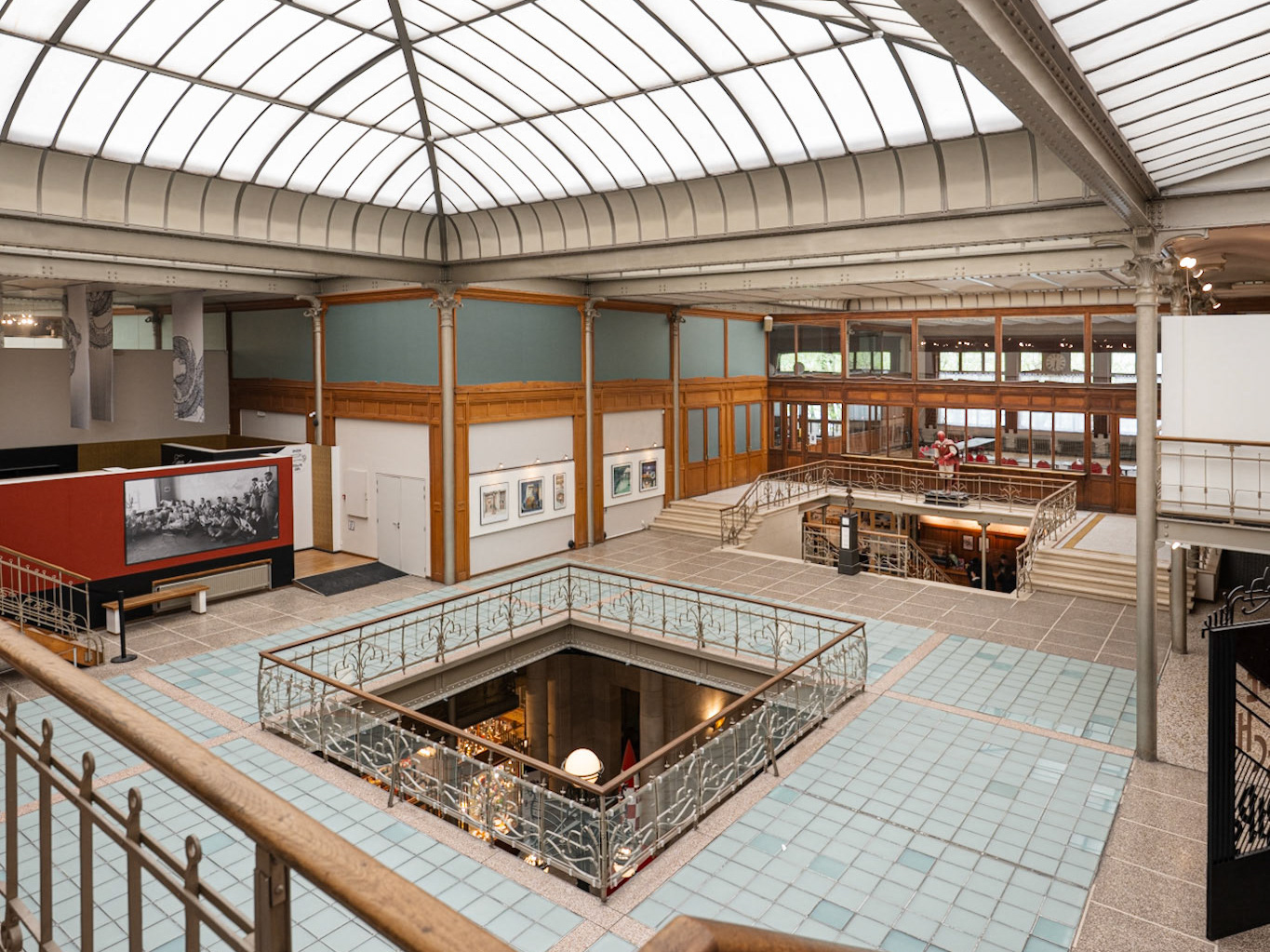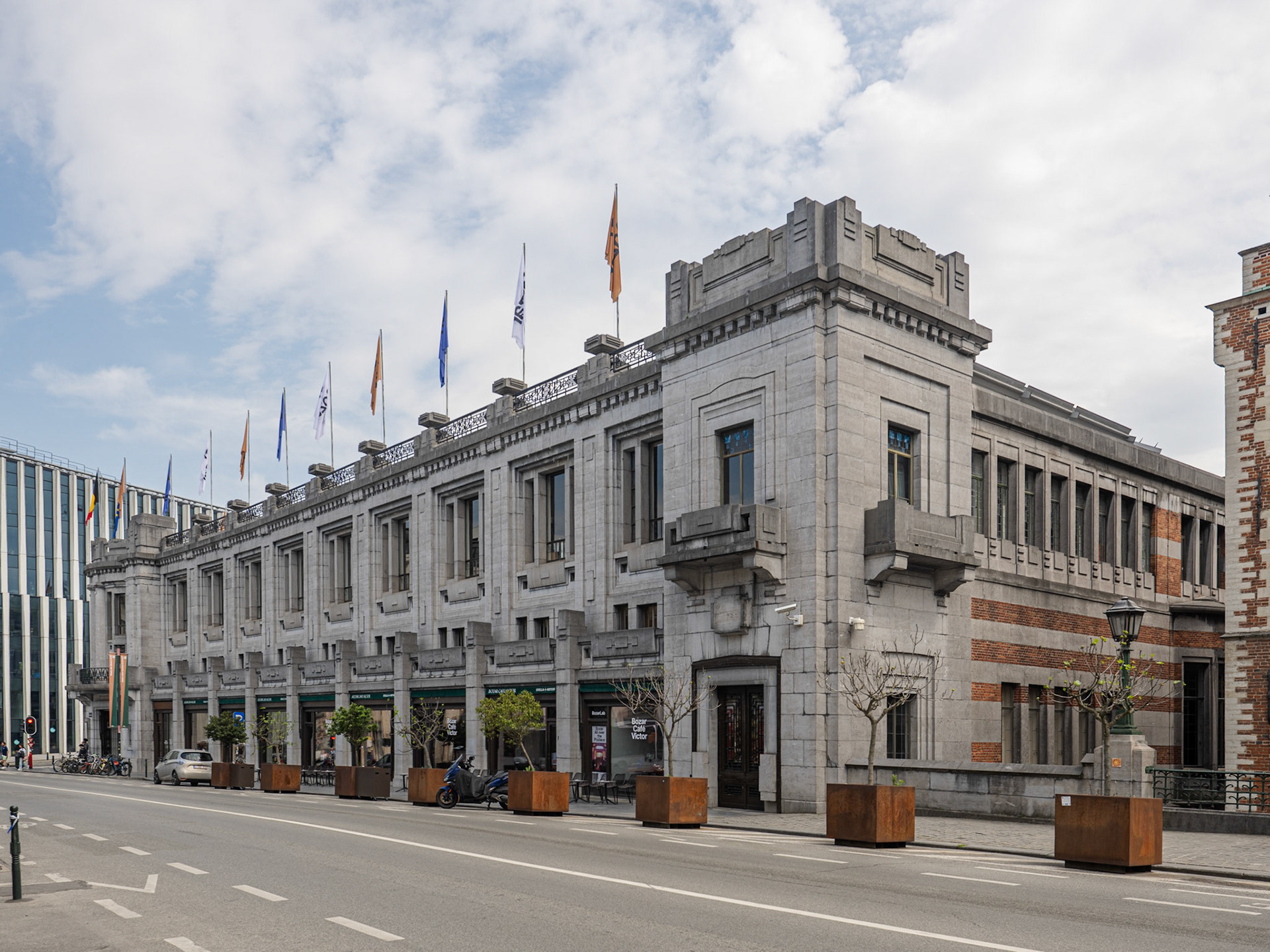



Victor Horta, born in Ghent in 1861, was a Belgian architect who played a defining role in the emergence of Art Nouveau. Known for his masterful integration of iron, glass, and organic forms, Horta brought a new decorative richness to architecture at the turn of the 20th century. Among his most celebrated residential designs is the Hôtel van Eetvelde in Brussels, a groundbreaking private residence where he boldly showcased industrial materials. After World War I, Horta adapted his style toward a more restrained geometric language, as seen in major civic projects like the Palais des Beaux-Arts (BOZAR), completed in 1929, a multidisciplinary cultural center overcoming strict urban constraints. He also worked on the plans for the Brussels Central Station, an ambitious project begun in the interwar period and completed after hist death in 1947.



